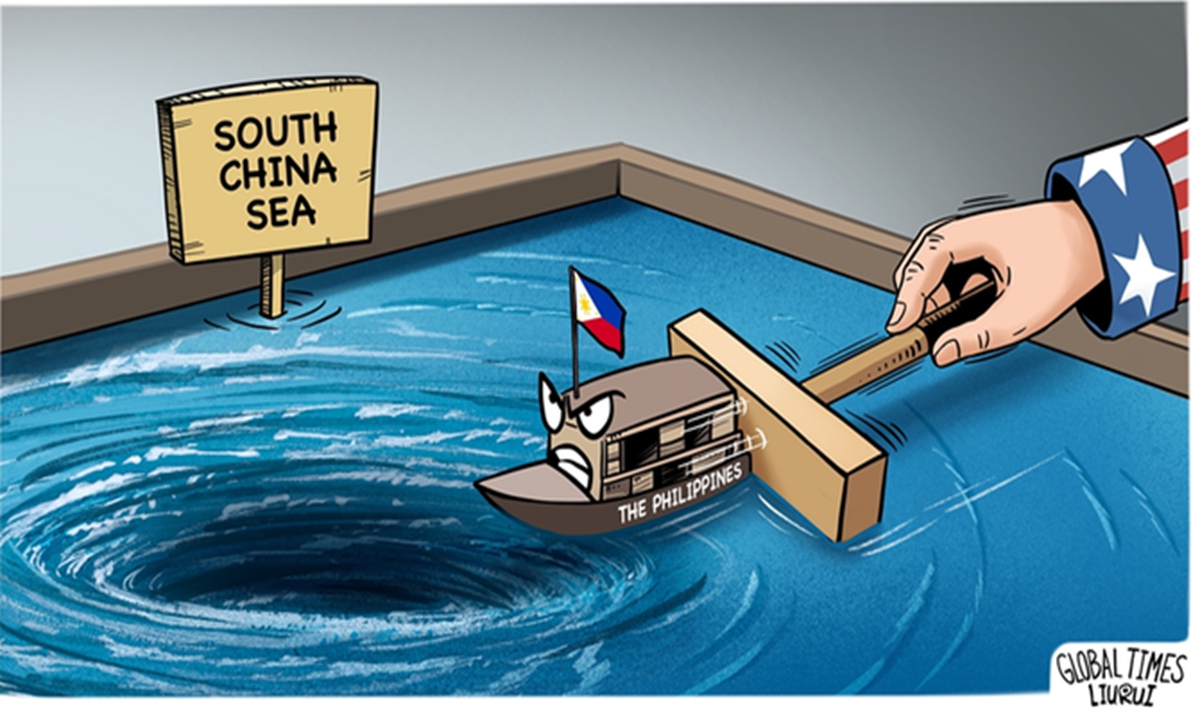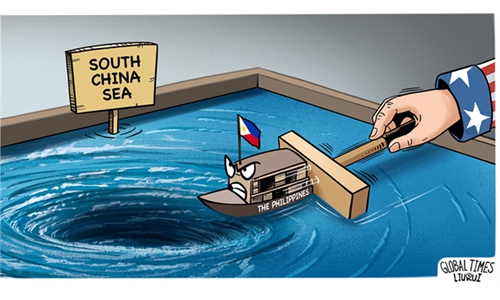
Illustration: Liu Rui/GT
Amid ongoing tensions in the South China Sea, Philippine Ambassador to the US Jose Manuel Romualdez claimed that he is expecting the Armed Forces of the Philippines (AFP) to be fully ready in its defense posture against "any threats" in the region by the end of the term of Philippine President Ferdinand Marcos Jr, especially with the help of the US.Analysts said that the ambassador's remarks were an expression of the Philippines' overconfidence in its capabilities and excessive optimism in its alliance with the US, and more of an attempt to garner more domestic support. Uncertainty will always remain about whether the US will keep its commitment or just try to make its allies share the costs of defense.
In an interview with Philippine media Super Radyo dzBB on Sunday, the envoy hailed Manila-Washington ties as currently being "at its best," with the two sides "rebooting" relations under Marcos Jr, the envoy's relative.
The ambassador said the Philippines has bipartisan support in terms of the South China Sea issues, and believed Manila should strengthen its armed forces and deterrence capabilities, according to a GMA News report.
He said he is expecting that with US help, the Armed Forces of the Philippines will be "fully ready in our defense posture and strategy" by the end of President Marcos' term.
The envoy said that the Philippines will prioritize developing its maritime forces, particularly the Navy and Coast Guard.
Chen Xiangmiao, director of the World Navy Research Center at the National Institute for South China Sea Studies, told the Global Times on Monday that the ambassador's remarks suggest that the Philippines is overconfident in its own capabilities and overoptimistic about US commitment.
According to Chen, the cost of developing a navy is extremely high, and it is difficult to achieve a significant increase in capabilities in a short time.
"The Philippine defense industrial base is still too weak, and lacks professional personnel, which means the time and cost for Manila will be even longer and larger," he said.
Despite economic forecasts for Philippines' GDP growth in 2024 being at around 6 percent, Chen said the country also faces many problems such as rising unemployment, inflation, rural development problems and lack of infrastructure construction, which all require huge amounts of financial support from the government, Chen said.
Earlier in April, two US senators introduced a bipartisan bill to provide Manila with $500 million a year in Foreign Military Financing (FMF) grant assistance over the five fiscal years to 2029.
In general, the US provides assistance to the Philippines in several fields, including the upgrading of weapons and equipment, troops training, and investment attached to the construction of US military bases in Philippines.
This assistance will not narrow the power gap between China and the Philippines, nor will it change the overall structure of military forces in the entire region, especially when the focus of American military aid is on Ukraine and Israel, Chen said.
The Philippines will find it hard to match its military strength with that of Vietnam, Thailand, Malaysia, Indonesia, Singapore and other Southeast Asian countries in a short time, said Chen.
"So what the Philippines ambassador is emphasizing now is more about speaking to the domestic public to gain some support," said Chen, "but these words were only the result of false signals from the US and the Philippine government's deliberate cover-up of some facts."


